


ABOUT DEPARTMENT:
The Department of Civil Engineering at Vaageswari College of Engineering is has been producing high-quality technical manpower needed to industry, R&D organizations, and academic institutions since 2013, with an Intake of 60. The intake has been increased to 120 in the year 2014.
Under academic activity, more emphasis is bestowed on deep comprehension and understanding of fundamental principles of each subject in all cognitive teaching learning methodologies. The department has full-fledged Surveying laboratory, AutoCAD, GIS laboratory, Engineering Geology laboratory, Strength of materials laboratory, Hydraulic and Hydraulics machinery laboratory, Soil Mechanics laboratory, Concrete Technology laboratory, Environmental Engineering laboratory, Transportation Engineering laboratory.
Many of our students are placed in reputed companies like GMR, L&T, Aparna infrastructures, NCC, Navayuga, GVK, Lanco Infratech limited, IVRCL infrastructures & projects ltd, Indian army, Indian navy and many more. The academic activities of the department emphasize deep understanding of fundamental principles, development of creative ability to handle the challenge of civil engineering, and the analytical ability to solve problems which are interdisciplinary in nature. The department is actively involved in basic and applied research and consultancy.
Department also provides technical guidelines for the benefits of students and entrepreneurs by organizing short-term courses, certificate oriented training programs like Auto-cad, Stadd.pro, and Primavera,Revit,MEP etc., under finishing school concept, seminars, academic/industrial guest lectures, national level workshops, national and international conferences.
OBJECTIVES:
1) To make the students useful for Building Industry directly after completing Civil Engineering course.
2) To Prepare and Develop Excellent and System of Power Point Projection to use in teaching activity.
3) To prepare working models in the subject Hydraulic Machines by using prospective and transparent PVC, plastic sheets.
4) To develop Geology Lab by collecting valuable minerals and rocks, and displaying all the available minerals in a show-case, to create a show room for the lab.
5) To train the faculty on latest technologies and improve their teaching methodologies.
6) To establish a platform where the industry and institution can interact and thereby expose the students to the industry environment.
7) To establish a center of excellence in the areas of Consultancy Work and Research in Construction Field.
To Impart Knowledge and Excellence in Civil Engineering and Technology with Technical Competencies to meet the Current and Future Challenges.


 � � To provide state of the art infrastructure and resources that contributes to a congenial learning
� � To provide state of the art infrastructure and resources that contributes to a congenial learning
� � � � � environment for students.
 � �To make the department a centre of excellence in the field of Civil Engineering and allied research.
� �To make the department a centre of excellence in the field of Civil Engineering and allied research.
 � �To promote innovative and original thinking in the minds of budding engineers to face the challenges of the future.
� �To promote innovative and original thinking in the minds of budding engineers to face the challenges of the future.
 � �To produce Civil Engineers of high caliber, technical skills and ethical values to serve the society and nation.
� �To produce Civil Engineers of high caliber, technical skills and ethical values to serve the society and nation.
 � �To Accomplish the Mission:
� �To Accomplish the Mission:
� � � � � � � � �1. An exceptional curriculum including in depth coverage in technical sub-disciplines of the department.
� � � � � � � � �2. Engages the students in creating innovative design solutions that include realistic constraints such as economic, environmental,social,health & safety.
� � � � � � � � �3. To train the students in a manner that they can pursue higher studies so that they can contribute to the teaching profession and development of civil engineering and other allied fields.
� � � � � � � � �4. The multicultural and multi-disciplinary groups for sustainable development and growth.
| S.NO | PEO# | Program Educational Objectives |
|---|---|---|
| � | Program Educational Objectives - 1 | Graduates will have fundamentals for successful profession and/or for higher education in civil engineering based on mathematical, scientific and engineering principles. |
| � | Program Educational Objectives 2 | Graduates will adopt to the modern engineering tools for planning, design, execution and maintenance of works with sustainable development in their profession. |
| � | Program Educational Objectives 3 | Graduates will exhibit professionalism, ethical attitude, communication and managerial skills, team work and social responsibility in their profession and adapt to current trends by engaging in lifelong learning. |
| � | Program Educational Objectives 4 | Excel in their professional career and higher education in their related fields. |
| � | Program Educational Objectives 5 | Exhibit professionalism through leadership, communication skills and team work. |
| � | Program Educational Objectives 6 | Adapt to emerging trends for sustained growth and exhibit social responsibility and professional ethics. |
| S.NO | PO'S | PROGRAME OUTCOMES |
| 1 | Engineering knowledge | Apply the knowledge of mathematics, science, engineering fundamentals and engineering specialization to the solution of complex engineering problems. |
| 2 | Problem analysis | Identify, formulate, review research literature and analyze complex engineering problems reaching substantiated conclusions using first principles of mathematics, natural sciences and engineering sciences. |
| 3 | Design/development of solutions | Design solutions for complex engineering problems and design system components or processes that meet the specified needs with appropriate consideration for the public health and safety, cultural, societal and environmental considerations |
| 4 | Conduct investigations of complex problems | Use research-based knowledge and research methods including design of experiments, analysis and interpretation of data and synthesis of the information to provide valid conclusions. |
| 5 | Modern tool usage | Create, select, apply appropriate techniques, resources, modern engineering, IT tools including prediction and modeling to complex engineering activities with an understanding of the limitations. |
| 6 | The engineer and society | Apply reasoning informed by the contextual knowledge to assess societal, health, safety, legal, cultural issues and consequent responsibilities relevant to the professional engineering practice |
| 7 | Environment and sustainability | Understand the impact of the professional engineering solutions in societal, environmental contexts and demonstrate the knowledge for sustainable development. |
| 8 | Ethics | Apply ethical principles, commitment to professional ethics, responsibilities and norms of the engineering practice. |
| 9 | Individual and team work | Function effectively as an individual, as a member or leader in diverse teams in multidisciplinary settings. |
| 10 | Communication | Communicate effectively on complex engineering activities with the engineering community and society at large such as, being able to comprehend, write effective reports, design documentation, make effective presentations, give and receive clear instructions. |
| 11 | Project management and finance | Demonstrate knowledge, understanding of the engineering and management principles and apply these to one�????????�???????�??????�?????�????�???�??�?¢??s own work, as a member/ leader in a team to manage projects in multidisciplinary environments. |
| 12 | Life-long learning | Recognize the need and have the preparation, ability to engage in independent and life-long learning in the broadest context of technological change. |
| SNO | PSO | PROGRAME SPECIFIC OUTCOMES |
| 1 | PSO 1 | Graduates will have an ability to design components of diverse civil structures like buildings, roads, bridges, hydraulic structures etc., |
| 2 | PSO 2 | Graduates will have an ability to understand the materials and processes involved in various domains of civil engineering. |
| SNO | Name and Details | Designation |
| � |
Mr. K.Rajesh� Assoc.Prof., & HoD of CE. |
Chairman |
| � |
Dr.V.Venkateswara Reddy Prof., of CE,�JNTUH UCESTH. |
University Nominee |
| � |
Dr. Guneshwar Rao T.D Prof., of CE,�NIT Warangal. |
Member (Subject Expert) |
| � |
Dr. L.Sudheer Reddy� Asst.� �Prof., of CE,NIT,Warangal. |
Member (Subject Expert) |
| � |
Mr. P. Ashok Kumar Asst. Director, National Academy of Construction(NAC),Hyd. |
Industry�Expert |
| � |
Mr. R.Ganesh Assoc. Prof., of CE, VGSE. |
Member |
| � |
Ms. G.Rupa Assoc. Prof., of CE, VGSE. |
Member |
| � |
Mr. E.Rakesh Reddy Assoc. Prof., of CE, VGSE. |
Member |
| � |
Ms. Seema Fathima Asst. Prof., of CE, VGSE. |
Member |
| � |
Ms.�A.Divya Sri Asst. Prof., of CE, VGSE. |
Member |
| � |
Mrs.K.Radha � Asst. Executive Engineer, Panchayatraj, Peddapalli, TG |
Alumnus |
| S.NO | Name of the Member | Designation | Position |
|---|---|---|---|
| � | Mr. K.Rajesh (Head, CIVIL) | Professor & HoD | Chairperson |
| � | Mr. R.Ganesh | Assistant Professor | Member Secretary |
| � | Mr.E.Rakesh reddy | Assistant Professor | Member |
| � | Ms. G.Rupa | Assistant Professor | Member |
| � | Ms. A.Divya Sri | Assistant Professor | Member |
Telangana Academy for Skills and Knowledge was established by the Government of Telangana to enable a platform between Government, Academia and Industry to enhance employability quotient of students in the state.
Vaageswari college of Engineering has MoU with Telangana Academy for Skill and Knowledge. This promotes to support for conducting workshops, internships & training programs to enhance student�?¢??s technical skills. Thus, improving the success rate of employability
�
Benefits:
* Faculty Development programmes
* Training Programs
* Skill Development Initiatives
* Research
* Industry - Institute Interaction
* Nurturing Innovation
Benefits:
�
* Nurturing Innovation
* Research
* Training Programs
�
QUALYIENT
Department of Civil Engineering has MoU with Qualyient Consulting Private Limited Bangalore. This Organization promotes to train the students on the emerging technologies in order to bridge the skill gap and make them industry ready.
The Concrete Technology Laboratory is a dedicated facility designed to enhance understanding and innovation in the field of construction materials, with a primary emphasis on concrete. It serves as a vital resource for civil engineering students, researchers, and industry professionals, offering hands-on experience with the processes involved in the production, testing, and analysis of concrete and its components.
Equipped with modern testing equipment such as compression testing machines, slump test apparatus, concrete mixers, curing tanks, and sieve analysis tools, the lab provides the infrastructure needed for both routine and advanced material testing. These facilities support a wide range of practical experiments, from basic concrete mix designs to evaluating the mechanical and durability properties of various concrete types.
The lab also plays a significant role in academic learning, enabling students to bridge the gap between theoretical concepts and real-world applications. Experiments such as workability tests, compressive strength testing, and quality assessments are regularly conducted as part of the curriculum, ensuring students gain valuable practical knowledge that complements their classroom studies.
In addition to academic functions, the lab fosters innovation and research in areas such as high-performance concrete, sustainable and green materials, fiber-reinforced concrete, and the use of industrial by-products. Through collaboration with industry partners and ongoing research projects, the Concrete Technology Lab contributes to advancements in construction techniques and promotes the development of durable, eco-friendly building materials.
�
The Environmental Engineering Laboratory is a vital component of civil and environmental engineering programs, providing the practical foundation for understanding and addressing modern environmental challenges. This lab is dedicated to the analysis, monitoring, and treatment of water, wastewater, air, and solid waste, supporting both academic instruction and research in environmental sustainability and public health.
Equipped with advanced instruments for water quality testing, BOD and COD analysis, pH and turbidity measurement, spectrophotometry, and microbiological analysis, the lab enables students and researchers to investigate the physical, chemical, and biological characteristics of environmental samples. These hands-on experiences help in understanding the complex interactions within natural and engineered systems, as well as in designing effective pollution control and treatment solutions.
The Environmental Engineering Lab plays a key role in educating students on essential topics such as water and wastewater treatment processes, air quality monitoring, and solid waste management. Through guided experiments and project-based learning, students gain practical skills in sampling, laboratory analysis, and environmental reporting in accordance with national and international standards.
In addition to academic learning, the lab supports innovative research in environmental technology, sustainability practices, and green infrastructure. It also collaborates with local authorities and industries for testing, consultancy, and the development of cost-effective solutions for environmental management and compliance. The lab thus serves as a critical platform for training future environmental engineers and fostering real-world impact through science and innovation.
The Geotechnical Engineering Laboratory is a specialized facility focused on the investigation and analysis of soil and rock behavior, forming a fundamental part of civil engineering education and research. This lab plays a crucial role in understanding ground conditions for the safe and sustainable design of foundations, earthworks, and other geotechnical structures.
Equipped with a wide range of testing equipment�including direct shear apparatus, triaxial testing machines, consolidation setups, standard and modified Proctor compaction equipment, and permeability testing units�the lab facilitates in-depth analysis of soil strength, compressibility, permeability, and other essential geotechnical properties. These tools allow students and researchers to perform laboratory tests that simulate real-world subsurface conditions.
The lab provides hands-on learning opportunities that bridge theory with practice, enabling students to gain a clear understanding of soil classification, stress-strain behavior, slope stability, and foundation design principles. Routine experiments such as grain size analysis, Atterberg limits, unconfined compression tests, and bearing capacity evaluations are conducted as part of the academic curriculum.
Beyond teaching, the Geotechnical Engineering Lab also supports advanced research in areas like ground improvement techniques, geosynthetics, and earthquake geotechnics. Collaborations with industry and consultancy services allow the lab to contribute to site investigations and geotechnical analysis for infrastructure projects, making it a critical resource for both educational and practical applications.
The Transportation Engineering Laboratory is a key facility that supports the study, design, and evaluation of transportation systems, with a focus on pavement materials, traffic flow, and transportation planning. This lab serves as a practical platform for civil engineering students and researchers to understand the behavior of materials used in roads and highways, as well as the dynamics of traffic systems and infrastructure development.
The lab is equipped with modern testing instruments such as the Marshall Stability apparatus, bitumen extractors, ductility testing machines, Los Angeles abrasion testing equipment, and traffic volume counters. These tools allow for comprehensive testing of bituminous materials, aggregates, and pavement layers to assess their strength, durability, and suitability for varying environmental and traffic conditions.
Students gain hands-on experience in mix design of flexible and rigid pavements, traffic volume studies, speed and delay surveys, and highway material testing. This practical exposure strengthens their knowledge of transportation planning, geometric design, traffic engineering, and pavement performance evaluation.
In addition to academic learning, the Transportation Engineering Lab supports research in innovative pavement materials, sustainable transportation practices, and intelligent transport systems (ITS). The lab also assists in traffic data analysis, pavement evaluation studies, and consultancy services for public and private infrastructure projects. It plays a vital role in shaping transportation professionals capable of designing efficient, safe, and sustainable mobility systems.
The Computer-Aided Drawing (CAD) Laboratory is designed to provide students with essential skills in digital drafting and visualization using industry-standard CAD software. The lab begins with an introduction to the CAD environment, including drawing tools, coordinate systems, and editing commands. Students practice creating 2D drawings of basic geometric shapes, orthographic projections, and isometric views of simple objects, helping them understand dimensioning, scaling, and layering techniques. As they progress, students learn to generate sectional views, detailed component drawings, and assembly drawings, adhering to standard engineering drawing conventions. The lab also introduces basic 3D modeling concepts, where students construct simple 3D objects and visualize them through different viewing angles and rendering options. Through these exercises, students develop accuracy, speed, and a solid understanding of engineering graphics, preparing them for more advanced design tasks in civil engineering and related fields.
The Civil Engineering Software Laboratory is designed to provide students with comprehensive exposure to a wide array of digital tools and technologies that are essential in modern civil engineering practice. The lab focuses on developing students' proficiency in using software applications for structural analysis, architectural drafting, geotechnical modeling, water resources planning, transportation design, and construction management. Structural design tools such as STAAD.Pro and ETABS enable students to model buildings and analyze their performance under various load conditions, including seismic and wind loads, helping them understand real-world structural behavior. Drafting and detailing are covered using AutoCAD, where students prepare accurate 2D plans, elevations, sections, and reinforcement detailing in compliance with standard drawing conventions. For geotechnical analysis, software like PLAXIS or GEO5 is introduced, allowing students to simulate soil behavior, slope stability, and foundation systems. In water resources engineering, applications like EPANET and SWMM are used to design and analyze water supply networks and urban drainage systems, emphasizing hydraulic modeling and flow simulation. The transportation component includes the use of Civil 3D or similar tools to design horizontal and vertical road alignments, cross-sections, and terrain models. Furthermore, project planning and management skills are developed through tools such as Primavera P6 or Microsoft Project, where students learn to create Gantt charts, manage resources, and monitor project progress. This lab plays a crucial role in bridging theoretical knowledge with practical implementation by simulating real-life engineering scenarios, thereby enhancing students' technical competence, design capabilities, and readiness for professional civil engineering environments.
The laboratory work in Elements of Civil Engineering�is designed to provide students with practical exposure to key concepts in both disciplines. In the geology section, students begin with the identification of minerals, including various groups such as Silica, Feldspar, Crystalline, Carbonate, Pyroxene, Mica, and Amphibole, followed by the identification of rocks under the categories of Igneous, Sedimentary, and Metamorphic petrology. Further, students learn to analyze topographical features using geological maps, identifying standard symbols and interpreting simple structural geological formations such as folds, faults, and unconformities. The civil engineering portion of the lab includes basic tests on cement, such as fineness, normal consistency, specific gravity, and the initial and final setting times. Students also perform tests on fine aggregates, including specific gravity, bulking of sand, and fineness modulus determination. Similarly, coarse aggregates are tested for their specific gravity and fineness modulus. These experiments help students understand the fundamental properties of construction materials and enhance their skills in geological interpretation and civil engineering practices.
The laboratory work in Fluid Mechanics and Hydraulic Machines (FMHM) is designed to give students practical insight into the behavior of fluids and the performance of hydraulic machines. Students begin by conducting experiments to determine fundamental fluid properties such as viscosity and pressure, followed by verification of basic principles like Bernoulli�s theorem and the concept of flow through orifices and venturimeters. Flow measurement techniques using notches and mouthpieces are also practiced to understand discharge and flow rates. The lab progresses to experiments involving pipe friction, loss of head due to sudden contraction and expansion, and major/minor losses in pipelines. In the hydraulic machines section, students operate and study the performance characteristics of turbines (Pelton wheel, Francis, and Kaplan) and pumps (centrifugal and reciprocating). These experiments help in plotting characteristic curves, calculating efficiencies, and understanding the working principles of each machine. Overall, the FMHM lab enhances students' understanding of fluid behavior, energy conversions, and hydraulic machinery, bridging theoretical knowledge with real-world engineering applications.
| S.No | Name of the Faculty | Qualification | Designation | Photo |
|---|---|---|---|---|
| MR. KODURUPAKA RAJESH | M-Tech, (PHD) | HOD & PROFESSOR |
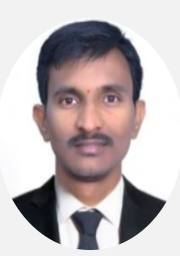
|
|
| MR. E. RAKESH REDDY | M-Tech | ASSISTANT PROFESSOR |
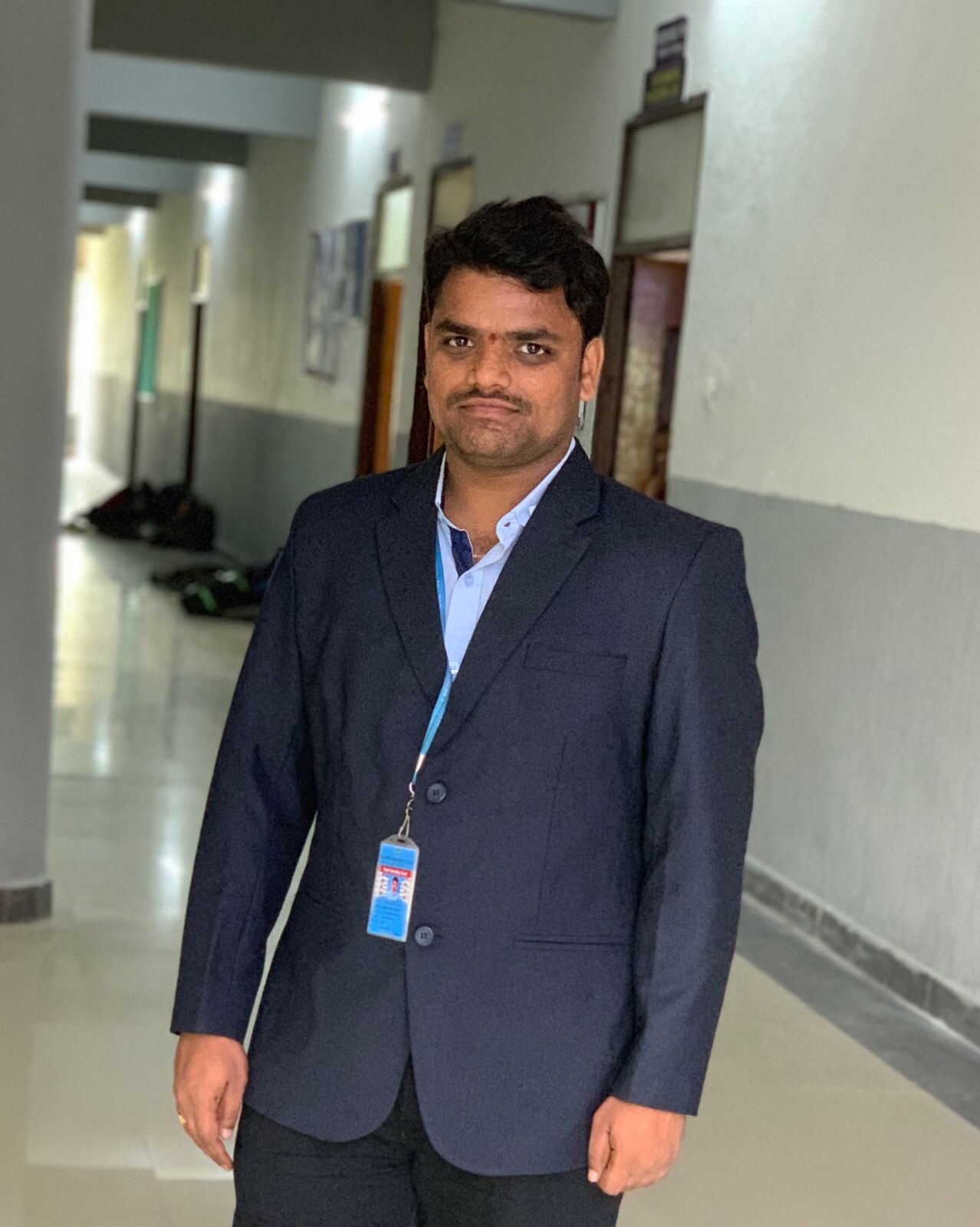
|
|
| MR. R. GANESH | M-Tech | ASSISTANT PROFESSOR |
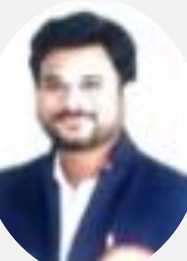
|
|
| MR. AMARAGANI MAHESH | M-Tech | ASSISTANT PROFESSOR |
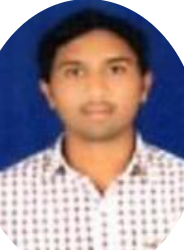
|
|
| MS. SEEMA FATHIMA | M-Tech | ASSISTANT PROFESSOR |
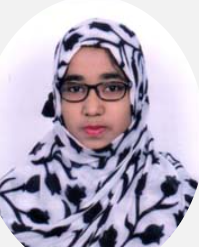
|
|
| MS. RUPA GADDAM | M-Tech | ASSISTANT PROFESSOR |
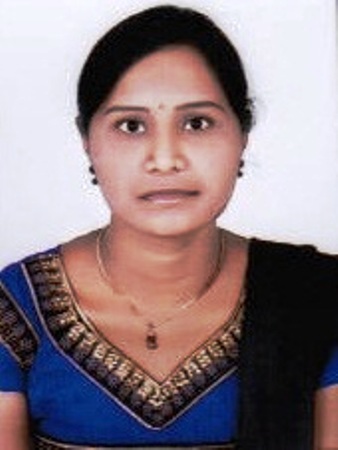
|
|
| MS. DIVYA SRI ANUMALA | M-Tech | ASSISTANT PROFESSOR |
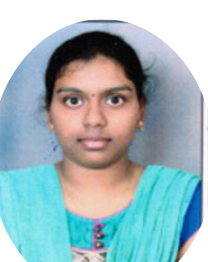
|
|
| MRS. NAGULAMALYALA JYOTHSNA | M-Tech | ASSISTANT PROFESSOR |
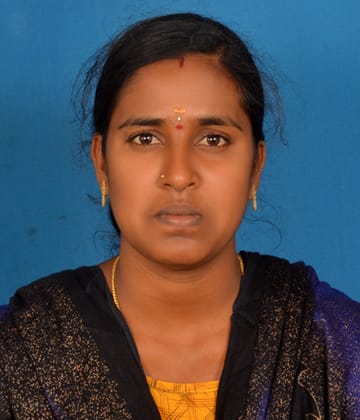
|
|
| MR. VEMULA VIDYA SAGAR | M-Tech | ASSISTANT PROFESSOR |
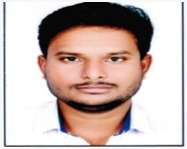
|
| �S.NO | NAME OF THE ACTIVITY | � � � � DATE | EVENT DETAIL/SPEAKER | NO. OF STUDENTS |
|---|---|---|---|---|
| � | One day Workshop on "Workshop on sustainable infrastructure development" | 21-01-2023 | Mr.K.Rajesh | 142 |
| � | Campus Recruitment Training | 13-02-2023 - � � � � � � � � � � � � �28-02-2023 | Mr. Lakshmannath A | 446 |
| � | One day Workshop on "Cyber Security" | 09-12-2024 | Mr. K. Vasanth Kumar | 89 |
| S.NO | NAME OF FACULTY | PAPER TITLE |
PUBLISHED/ PRESENTED YEAR |
NAME OF JOURNAL | ISSN NUMBER |
| � |
� � � � � � � � � � � � � � � � � � � � � Mr.K.RAJESH � � � � � � � � � � � � � � � � � � � � � � � � � � � |
PERFORMANCE EVALUATION OF CONCRETE STRENGTH MADE WITH RECYCLED AGGREGATE � |
2024 |
INTERNATIONAL JOURNAL OF RESEARCH AND ANALYTICAL REVIEWS (IJRAR) � |
2349-5138 |
| FIBER REINFORCED SELF COMPACTING CONCRETE ADMIXTURED WITH FLY ASH AND SILICA FUME | 2022 | INTERNATIONAL JOURNAL OF SCIENTIFIC RESEARCH IN SCIENCE AND TECHNOLOGY | 2395-6011 | ||
| EXPERIMENTAL INVESTIGATION ON SELF COMPACTING CONCRETE USING QUARRY DUST MATERIAL | 2020 | INTERNATIONAL JOURNAL OF SCIENTIFIC RESEARCH IN SCIENCE AND TECHNOLOGY | 2395-6011 | ||
| EXPERIMENTAL INVESTIGATION ON CLAYEY SOIL REINFORCED WITH POLYESTER (RECRON -3S) FIBRES | 2018 | JOURNAL OF EMERGING TECHNOLOGIES AND INNOVATIVE RESEARCH | 2349-5162 | ||
| EXPERIMENTAL INVESTIGATION ON SOIL STABILIZATION WITH DEMOLISHED CONCRETE | 2018 | JOURNAL OF CATALYST & CATALYSIS | 2349-4344 | ||
| EXPERIMENTAL INVESTIGATION ON CLAYEY SOIL REINFORCED WITH POLYESTER (RECRON -3S) FIBRES | 2018 | PAPER PRESENTED IN INTERNATIONAL CONFERENCE ON INNOVATIONS & DISCOVERIES IN SCIENCE, ENGINEERING AND MANAGEMENT | --- | ||
| EXPERIMENTAL INVESTIGATION ON SOIL STABILIZATION WITH DEMOLISHED CONCRETE | 2018 | PAPER PRESENTED IN INTERNATIONAL CONFERENCE ON INNOVATIONS & DISCOVERIES IN SCIENCE, ENGINEERING AND MANAGEMENT | --- | ||
|
NEW SYSTEM OF STRUCTURAL HEALTH MONITORING � |
2016 | PAPER PRESENTED IN INTERNATIONAL CONFERENCE ON SUSTAINABLE MATERIALS AND MANAGEMENT SYSTEMS IN CIVIL ENGINEERING | __ | ||
| SEISMIC ENERGY DISSIPATION OF STEEL BUILDINGS USING ENGINEERED CLADDING SYSTEMS | 2015 | INTERNATIONAL JOURNAL OF SCIENTIFIC & ENGINEERING RESEARCH | 2321-7545 | ||
|
SEISMIC BEHAVIOR OF ISOLATED R.C.C BRIDGES � |
2014 | PAPER PRESENTED IN�NATIONAL CONFERENCE ON ADVANCES IN CIVIL ENGINEERING & INFRASTRUCTURE DEVELOPMENT | -- | ||
|
PERFORMANCE OF EXISTING RCC BUILDING BY PUSHOVER ANALYSIS � A CASE STUDY ON 5 STOREY RCC FRAMES � |
2014 | PAPER PRESENTED IN NATIONAL CONFERENCE ON RECENT RESEARCH ADVANCES IN CIVIL ENGINEERING | -- | ||
| � | Mr. R.GANESH | PERFORMANCE EVALUATION OF RECYCLED BITUMEN BEFORE AND AFTER THE ADDITION OF PLASTIC WASTE | 2013 | INTERNATIONAL JOURNAL OF ENGINEERING RESEARCH & TECHNOLOGY | 2278-0181 |
| CREATION OF PLASTIC MARBLE | 2018 | INTERNATIONAL JOURNAL OF SCIENTIFIC RESEARCH IN CIVIL ENGINEERING | 2456-6667 | ||
| � | Ms. G.RUPA |
EXPERIMENTAL INVESTIGATION ON STRENGTH PROPERTIES OF LIGHT WEIGHT AGGREGATE CONCRETE USING AGGREGATE BY PRODUCTS SUCH AS SHEEL, ASH � |
2018 | JOURNAL OF EMERGING TECHNOLOGIES AND INNOVATIVE RESEARCH | 2349-5162 |
| � | Mr. E. RAKESH REDDY | ENERGY CONSUMPTION ANALYSIS AND SIMULATION FOR ZERO ENERGY BUILDINGS | 2024 |
INTERNATIONAL JOURNAL OF RESEARCH AND ANALYTICAL REVIEWS (IJRAR) � |
2349-5138 |
| DESIGN AND MODELLING OF G+5 COMMERCIAL BUILDING BY AUTODESK REVIT ARCHITECTURE | 2019 | INTERNATIONAL JOURNAL OF ENGINEERING AND ADVANCED TECHNOLOGY | 2249-8958 | ||
| UTILISATION OF SOLID WASTE TO PRODUCE ECO FRIENDLY BRICKS | 2019 | INTERNATIONAL JOURNAL OF INNOVATIVE TECHNOLOGY AND EXPLORING ENGINEERING | 2278-3075 | ||
| APPLICATIONS OF GREEN MATERIALS FOR THE PREPARATION OF ECO FRIENDLY BRICKS AND PAVERS | 2018 | PAPER PUBLISHED IN INTERNATIONAL JOURNAL IJET |
ISBN-978-81-937041-9-6 � |
||
| TRANSFORMATIONS IN ENGINEERING EDUCATION-IMPARTING FUTURISTIC SKILLS | 2018 | PAPER PRESENTED IN INTERNATIONAL CONFERENCE ICTIEE | -- |
| S.NO | NAME OF FACULTY | NAME OF EVENT | ORGANISING INSTITUTE | DATE/YEAR | TITLE OF PROGRAM |
|---|---|---|---|---|---|
| � |
� � � � � � � � � � � Mr.K.RAJESH � � � � � � � � � � � � � � � � � � � � � � � � � � � � � � � � � � � � � � � � � � � � � � � � � � � � � � � � � Mr .K. RAJESH � � � � � � � � � � � � � � � � � � � � � � � � � � � � � � � � � � � � � � � � |
SHORT TERM PROGRAMME THROGH ICT MODE | NATIONAL INSTITUTE OF TECHNICAL TEACHERS TRAINING AND RESEARCH,KOLKATA | 22-04-2019 TO� 26-04-2019 | NBA ACCREDITATION |
| � | FACULTY DEVELOPMENT PROGRAM | TEACHING AND LEARNING CENTER,NIT WARANGAL | 08-05-2019 TO 13-05-2019 | PEDAGOGY AND ICT IN HIGHER EDUCATION | |
| � | DIGITAL KNOWLEDGE SERIES-SEASON-3 | ICT ACADEMY | 27-04-2020 TO 01-05-2020 | THE FUTURE IS HERE NOW | |
| � | FACULTY DEVELOPMENT PROGRAM | AP STATE SKILL DEVELOPMENT CORPORATION | 30-04-2020 TO 02-05-2020 | AUTOMOTIVE STRUCTURE DESIGN USING CATIA | |
| � | ONLINE WEBINAR | ADAMAS UNIVERSITY | 02-05-2020 | WASTE TO WEALTH: A FUTURISTIC APPROACH FOR THE REMEDIATION OF PLASTIC WASTE | |
| � | DIGITAL KNOWLEDGE SERIES-SEASON-4 | ICT ACADEMY | 04-05-2020 TO� 08-05-2020 | THE FUTURE OF EDUCATION,EMPLOYMENT & ENTREPRENEURSHIP | |
| � | ONLINE WEBINAR | ADAMAS UNIVERSITY | 04-05-2020 |
QUALITY,ENVIRONMENTAL,HEALTH AND SAFETY MANAGEMENT SYSTEM � |
|
| � | FACULTY DEVELOPMENT PROGRAM | GOKARAJU RANGARAJU INSTITUTE OF ENGINEERING AND TECHNOLOGY | 07-05-2020 TO 13-05-2020 | ART OF WRITING RESEARCH PAPERS AND METHODOLOGIES | |
| � | FACULTY DEVELOPMENT PROGRAM | MARATHWADA MITRAMANDALA INST OF TECHNOLOGY | 08-05-2020 TO 14-05-2020 | NAAC AWARENESS PROGRAMME | |
| � | ONLINE WEBINAR | DR. N G P INSTITUTE OF TECHNOLOGY | 09-05-2020 | TRAINING ON SKETCHUP SOFTWARE | |
| � | ONLINE WEBINAR | JAYAM COLLEGE OF ENGINEERING & TECHNOLOGY | 10-05-2020 | EDUCATION/JOB OPPORTUNITIES IN USA & INDIA, PRE &POST COVID -19 | |
| � | ONLINE WEBINAR | JAYAM COLLEGE OF ENGINEERING & TECHNOLOGY | 11-05-2020 | STUDENTS BENEFITS & EFFECTS OF THE LOCKDOWN | |
| � | ONLINE WEBINAR | DR. N G P INSTITUTE OF TECHNOLOGY | 11-05-2020 | BIM CONCEPTS USING TEKLA STRUCTURES | |
| � | ONLINE WEBINAR |
JAYAM COLLEGE OF ENGINEERING & TECHNOLOGY � � � � � |
13-05-2020 | IMPACT OF COVID-19 ON THE CONSTRUCTION INDUSTRY | |
| � | ONLINE WEBINAR | DR. N G P INSTITUTE OF TECHNOLOGY | 13-05-2020 | SPACES AND ZONES FOR HVAC DESIGN | |
| � | ONLINE WEBINAR | ACS COLLEGE OF ENGINEERING | 17-05-2020 | JOB OPPORTUNITIES IN CIVIL ENGINEERING | |
| � | DIGITAL KNOWLEDGE SERIES-SEASON-6 | ICT ACADEMY | 18-05-2020 TO 20-05-2020 | FUTURE TECH 2020 | |
| � | ONLINE WEBINAR | KL UNIVERSITY | 18-05-2020 | MAGNETIC SURVEY OF METEORITIC IMPACT CRATERS | |
| � | ONLINE WEBINAR | KL UNIVERSITY | 19-05-2020 | FOUNDATION DESIGN(SAFE SOFTWARE) | |
| � | ONLINE WEBINAR | SRI RANGANTHAR INST OF ENGG & TECHNOLOGY | 20-05-2020 | ESTIMATION AND COSTING | |
| � | ONLINE WEBINAR | KL UNIVERSITY | 20-05-2020 | CHALLENGES IN DESIGN AND CONSTRUCTION OF TALL STRUCTURES | |
| � | ONLINE WEBINAR | VAAGDEVI COLLEGE OF ENGINEERING | 22-05-2020 | INTRODUCTION TO STRUCTURAL DESIGN | |
| � | ONLINE WEBINAR | KL UNIVERSITY | 22-05-2020 | EXPERIMENTAL STUDY ON GGBS AND METAKAOLIN BASED GEO POLYMER CONCRETE | |
| � |
ONLINE WEBINAR � |
KL UNIVERSITY | 23-05-2020 | ADVANCES IN GEOTECHNICAL ENGINEERING | |
| � | ONLINE WEBINAR | KL UNIVERSITY | 23-05-2020 | SELECTION OF CEMENT FOR DURABLE STRUCTURES | |
| � | ONLINE WEBINAR | VAAGDEVI COLLEGE OF ENGINEERING | 25-05-2020 | ARTIFICIAL AGGREGATE AND ITS BEHAVIOURAL ASPECTS ON STRUCTURES | |
| � | ONLINE WEBINAR | KL UNIVERSITY | 29-05-2020 | COLD FORM STEEL STRUCTURES | |
| � | ONLINE QUIZ | JOGINPALLY ENGINEERING COLLEGE | 29-05-2020 | RESEARCH METHODOLOGY | |
| � | ONLINE QUIZ | NARSARAOPETA RNGINEERING COLLEGE | 29-05-2020 | BUILDING MATERIALS AND CONSTRUCTION | |
| � | ONLINE WEBINAR | KL UNIVERSITY | 30-05-2020 | ANALYSIS OF COMPOSITE LAMINATES | |
| � | ONLINE QUIZ | RAJALAKSHMI ENGINEERING COLLEGE | 08-06-2020 | CIVIL ENGINEERING TECHNICAL QUIZ | |
| � | ONLINE QUIZ | GATES� INSTITUTE OF TECHNOLOGY | 01-07-2020 | BASIC CONCEPTS IN CIVIL ENGINEERING | |
| � | ONLINE FACULTY DEVELOPMENT PROGRAM | BALAJI INST OF TECH & SCIENCE | 06-07-2020 TO 11-07-2020 | RECENT TRENDS IN CIVIL ENGINEERING | |
| � | ONLINE FACULTY DEVELOPMENT PROGRAM | MANGALORE INSTITUTE OF TECHNOLOGY AND SCIENCE | 25-01-2021 TO 29-01-2021 | ENVIRONMENTAL GEOTECHNOLOGY | |
| � | Mr.R.GANESH | FACULTY DEVELOPMENT PROGRAM | MANGALORE INSTITUTE OF TECHNOLOGY AND ENGINEERING | 25-01-2021 TO 29-01-2021 | ENVIRONMENTAL GEOTECHOLOGY |
| � | SHORT TERM TRAINING PROGRAM STTP PHASE-2 | KKR & KSR INSTITUDE OF TECHNOLOGY AND SCIENCE | 07-12-2020 TO� � 12-12-2020 | ADVANCE CONSTRUCTION TECHNIQUES IN LOW COST CIVIL STRUCTURE FOR MODERN LIVING | |
| � | FACULTY DEVELOPMENT PROGRAM | KKR & KSR INSTITUDE OF TECHNOLOGY AND SCIENCE | 25-06-2020 | ROLE OF ONLINE TEACHING PEDAGOGY AND ICT TOOLS IN OUTCOME BASED EDUCATION | |
| � | FACULTY DEVELOPMENT PROGRAM | BALAJI INSTITUDE OF TECHNOLOGY AND SCIENCE | 06-07-2020 TO 11-07-2020 | RECENT TRENDS IN CIVIL ENGINEERING | |
| � | FACULTY DEVELOPMENT PROGRAM | GOKARAJU RANGARAJU ENGINEERING COLLEGE | 21ST TO 27TH-DEC-2020 | OUTCOME BASED EDUCATION RESEARCH METHODOLOGIES | |
| � | FACULTY DEVELOPMENT PROGRAM | VAAGESWARI COLLEGE OF ENGINEERING | 22ND TO 26TH JUNE 2020 | EMERGING TECHNOLOGIES IN CIVIL ENGINEERING AND APPLICATION | |
| � | WORKSHOP | NALLA MALLA REDDY ENGINEERING COLLEGE | 13TH TO 18TH JULY 2020 | STAAD PRO | |
| � | WEBINAR | SRI RANGANATHAR INSTITUTE OF ENGINEERING AND TECHNOLOGY | 20-05-2020 | ESTIMATION AND COSTING | |
| � | WEBINAR | VAAGESWARI COLLEGE OF ENGINEERING | 24-06-2020 |
THEORY OF SIMPLE BENDING AND IT'S APPLICATION IN CIVIL ENGINEERING � � � � � |
|
| � | Ms.G.RUPA | FACULTY DEVELOPMENT PROGRAM | GOKARAJU RANGARAJU INSTITUTE OF ENGINEERING AND TECHNOLOGY |
18TH-22ND JAN 2021 � |
TRENDS IN CIVIL ENGINEERING |
| � | FACULTY DEVELOPMENT PROGRAM | GOKARAJU RANGARAJU INSTITUTE OF ENGINEERING AND TECHNOLOGY |
21ST-27TH DEC 2020 |
OUTCOME BASED EDUCATION AND RESEARCH METHODOLOGIES | |
| � | FACULTY DEVELOPMENT PROGRAM | EMERGING TECHNOLOGIES IN CIVIL ENGINEERING AND APPLICATIONS (ETCA) ,ORGANIZED BY VAAGESWARI� COLLEGE OF ENGINEERING | 22ND-26TH JUNE 2020 | EMERGING TECHNOLOGIES IN CIVIL ENGINEERING AND APPLICATIONS | |
| � | FACULTY DEVELOPMENT PROGRAM |
TECHNOLOGIES FOR INFRASTRUCTURE PLANNING,DESIGN,MONITORING ANDMANAGEMENT � � |
16TH-20TH JUNE 2020 | NALLA MALLA REDDY ENGINEERING COLLEGE | |
| � | Mr. E. RAKESH REDDY | FACULTY DEVELOPMENT PROGRAM | SANTHIRAM ENGINEERING COLLEGE, KURNOOL | 10-05-2020 TO 15-05-2020 | ONLINE TEACHING ETIQUTTE AND BEST PRACTICES |
| � | FACULTY DEVELOPMENT PROGRAM | CMR INSTITUTE OF TECHNOLOGY,HYD | 20-05-2020 TO 22-05-2020 | RECENT ADVANCES IN CIVIL ENGINEERING-2020 | |
| � | WEBINAR | VISHNU INSTUTUTE OF TECHNOLOGY, BHIMAVARAM | 13-08-2020 | CASE STUDIES IN GEOTECHNICAL STUDIES-EMPHASIS ON SITE HISTORY, HUMAN ACTIONS AND SIMULATIONS | |
| � | WEBINAR | MVSR ENGINEERING COLLEGE, HYD | 10-08-2020 | MODERN TRENDS OF FORMWORK FOR CONSTRUCTION | |
| � | WEBINAR | VIDYA JYOTHI INSTITUTE OF TECHNOLOGY, HYD | 10-08-2020 | ADVANCEMENT IN CONCRETE TECHNOLOGY | |
| � | WEBINAR | VIDYAVARDHAKA COLLEGE OF ENGINEERING, MYSURU | 08-08-2020 | ENERGY EFFICIENCY AND GREEN BUILDING | |
| � | Mr.A.DIVYA SRI | CERTIFICATIONS | SKYFI LABS | JULY�2020 | STRUCTURAL AND FOUNDATION ANALYSIS� |
| � | CERTIFICATIONS | INFRATECH | NOV�2020 | REVIT LEVEL -I |
| S.NO | INDUSTRIAL VISITS |
|---|---|
| � | III Year Civil Engineering Students have Conducted Waste Management and Recycling Survey in Karimnagar Town and Appreciated by MAYOR Karimnagar.� |
| � | III AND IV YEAR CIVIL ENGINEERING STUDENTS VISITED KAALESHWARAM PROJECT GAYATHRI PUMP HOUSE AT RAMADUGU KARIMNAGAR |
| � | III AND IV YEAR CIVIL ENGINEERING STUDENTS VISITED MISSION BHAGIRATHA PLANT, KARIMNAGAR |
| � | III AND IV YEAR CIVIL ENGINEERING STUDENTS VISIT KAALESHWARAM (ANNARAM, SUNDHILLA and KANNEPALLI PUMP HOUSE) PROJECT ON 26-09-2019. |
| � | III, IV YEAR CIVIL ENGINEERING STUDENTS ATTEND A WORKSHOP ON �BUILDING INSTRUMENTATION AND MODELING (BIM),REVIT,ARCHITECTURE� ON 24/09/2019 BY FUTURE GEN TECHNOLOGIES INDIA PVT.LTD |
| � | II AND III YEAR CIVIL ENGINEERING STUDENTS VISIT �CABLE STAYED SUSPENSION BRIDGE� PROJECT AT KARIMNAGAR ON 21-09-2019. |
| � | III YEAR CIVIL ENGINEERING STUDENTS VISIT WASTE MANAGEMENT PROJECT BY RAMKY�s AT HYDERABAD ON 13-03-2019. |
| � | II, III YEAR CIVIL ENGINEERING STUDENTS ATTEND A WORKSHOP ON �EMERGING TRENDS IN DESIGN AND DRAFTING SOFTWARES� ON 06/02/2019 BY KG MECH INDIA PVT.LTD |
| � | GUEST LECTURE PROGRAMME ON �CONDITION ASSESMENT OF CONCRETE STRUCTURES� FOR III, IV YEAR CIVIL ENGINEERING STUDENTS ON 24-09-2016 BY Dr. B.DEAN KUMAR PROF IN CIVIL ENGINEERING DEPARTMENT, JNTUH�HYD |
| � | IV YEAR CIVIL ENGINEERING STUDENTS VISIT �SRSP PROJECT� NIZAMABAD ON 17/09/2016.� |
| � | Vaageswari College of Engineering Placements Info | View |
HOD & PROFESSOR
It is a great honor for me to be a part of Vaageswari College of Engineering. I warmly welcome all the students and their parents to the Department of Civil Engineering.
The Department of Civil Engineering is dedicated to shaping competent engineers with strong technical knowledge, practical skills, leadership qualities, and a sense of social responsibility. Our department has consistently produced skilled professionals who have made remarkable contributions in infrastructure development both nationally and internationally.
We focus on blending academic learning with real-world applications through advanced laboratories, fieldwork, and project-based learning. Our well-qualified faculty, excellent infrastructure, and industry-oriented training ensure that students receive holistic and high-quality education.
We encourage active participation of students, parents, and faculty in the academic journey, and our Training and Placement Cell plays a key role in guiding students towards promising careers.
I invite you to be a part of our mission as we strive to elevate the Department of Civil Engineering to new heights. I sincerely appreciate the continuous efforts of our faculty and students in achieving excellence through innovation and commitment.
Mobile Number: 9133245888
Email: civil.hod@gmail.com